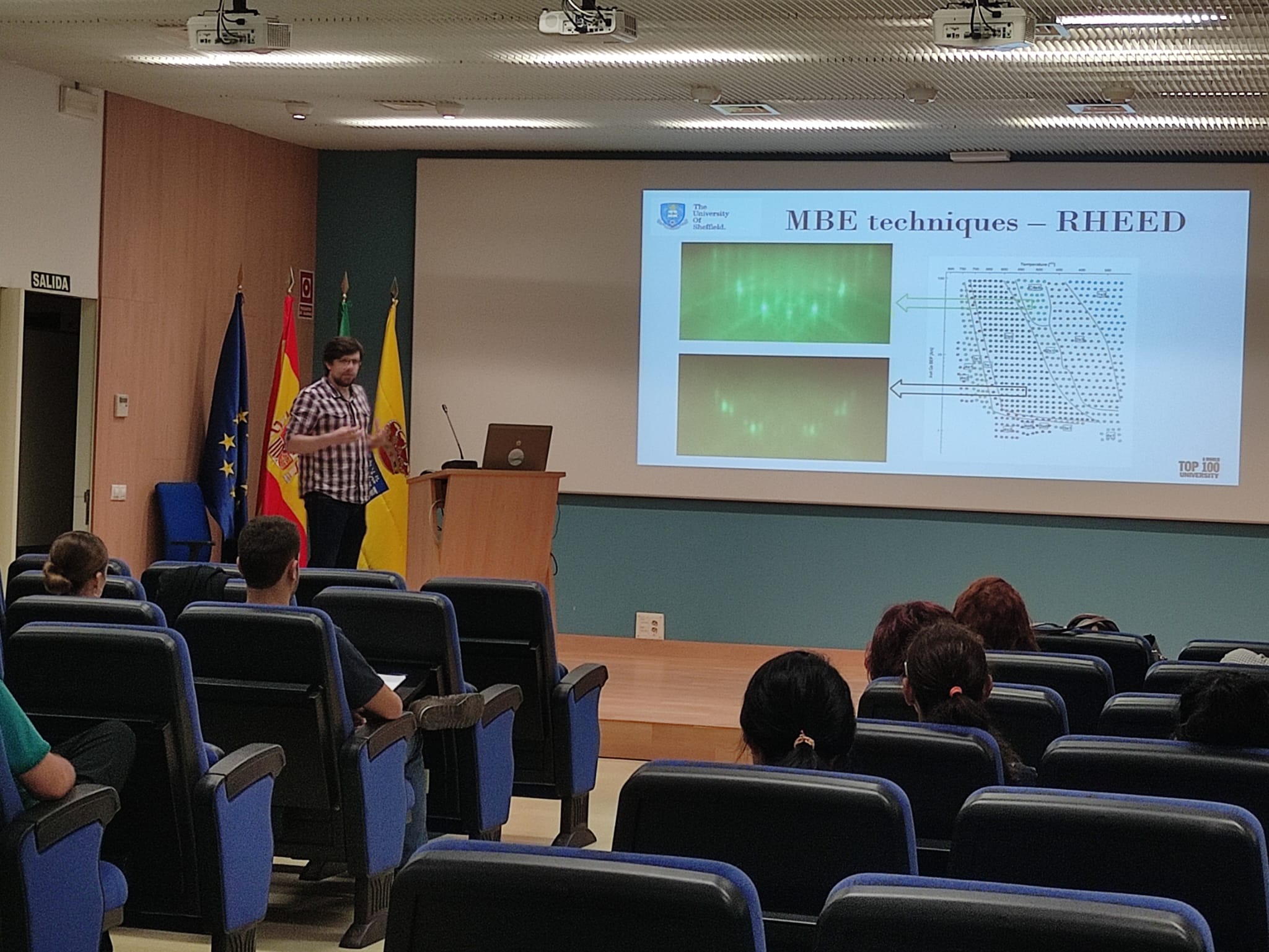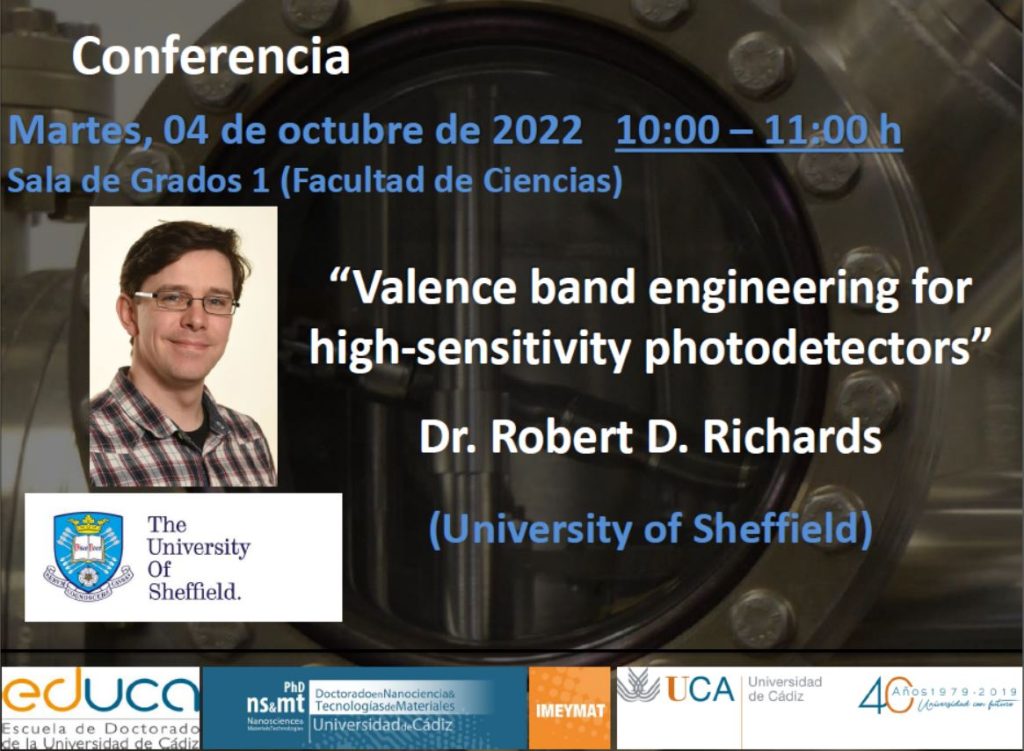Today, October 4, we were able to enjoy the conference “Valence band engineering for high-sensitivity photodetectors” given by Dr. Robert D. Richards, from the University of Sheffield.

Dr Richards gained his PhD in the MBE growth of GaAsBi from the University of Sheffield in 2014 and held a Royal Academy of Engineering Research Fellowship between 2017 and 2022. He is now investigating the use of bismuth-enabled valence band engineering to produce extremely sensitive avalanche photodetectors (APDs). The incorporation of bismuth into many conventional III-V alloys induces a rapid increase in the spin-orbit splitting. This acts to prevent holes from causing impact ionisation, reducing the excess noise in the devices. Dr Richards will discuss the challenges associated with the MBE growth of dilute bidmide materials and the prospects for their use in high-sensitivity APDs.


